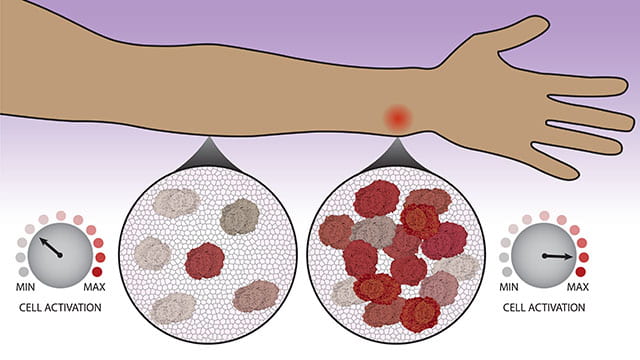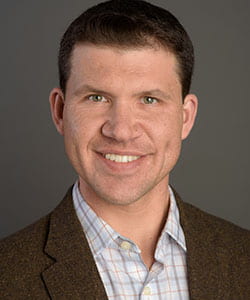Many people consult their friends and neighbors before making a big decision. It turns out that cells also are consulting their neighbors in the human body.
Scientists and physicians have long known that immune cells migrate to the site of an infection, which individuals experience as inflammation — swelling, redness and pain. Now, Northwestern University and University of Washington researchers have uncovered new evidence that this gathering is not just a consequence of immune activation. Immune cells count their neighbors before deciding whether or not the immune system should kick into high gear.
Understanding how to influence inflammation and activate an immune response could lead to new therapies to treat chronic autoimmune diseases or to mobilize the immune system to help fight cancer.
“This is a previously unrecognized aspect of immune function,” said Northwestern’s Joshua Leonard, a member of the Chemistry of Life Processes Institute, who co-led the study. “The cells make a coordinated decision. They don’t uniformly activate but instead collectively decide how many cells will activate, so that together, the system can fend off a threat without dangerously overreacting.”
“A key part of this work relied on the development of new computational models to interpret our experiments and elucidate how cells perform calculations to make coherent decisions,” said University of Washington’s Neda Bagheri, who co-led the work with Leonard.
The research was published today (Feb. 13) in the journal Nature Communications.
Leonard is an associate professor of chemical and biological engineering at Northwestern’s McCormick School of Engineering and a member of Northwestern’s Center for Synthetic Biology. Bagheri is an associate adjunct professor of chemical and biological engineering at McCormick and an assistant professor of chemical engineering and biology and a Distinguished Washington Research Foundation Investigator at the University of Washington. The paper’s first author is Joseph Muldoon, a graduate student in Northwestern’s Interdisciplinary Biological Sciences Graduate Program, who is co-advised by Leonard and Bagheri.
The body’s immune system is constantly working to maintain a delicate balance. When a threat is introduced, the system needs to respond strongly enough to fight off infection or disease but not so strongly that it causes harm.
“When it comes to immune responses, it’s the difference between life and death,” Leonard said. “If your body over-responds to a bacterial infection, then you could die from septic shock. If your body doesn’t respond enough, then you could die from rampant infection. Staying healthy requires the body to strike a balance between these extremes.”
Original story published in Northwestern Now by Amanda Morris.
Josh Leonard is a member of the Chemistry of Life Processes Institute. The CLP Cornew Award was awarded to both Leonard and Neda Bagheri, a former member of the Institute.

